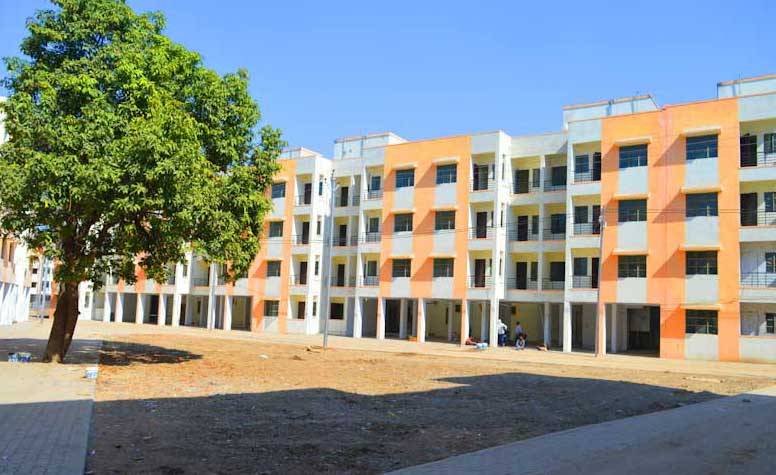In the second quarter (Q2) of 2024, the real estate market in India's major cities witnessed a notable slowdown in housing sales, primarily driven by a substantial increase in property prices. According to ANAROCK Research Report, housing sales across the top seven cities declined by 8% compared to the previous quarter (Q1 2024), totaling approximately 1.20 lakh units. This decline comes amidst a backdrop of rising property prices, which have surged significantly over the past year.
Regional Variations in Housing Sales
The second quarter (Q2) of 2024 witnessed a significant impact on housing sales across India's major cities, largely influenced by a notable increase in property prices. Here's a breakdown of the trends observed in each of the top seven cities:
1. Mumbai Metropolitan Region (MMR)
- Housing Sales: MMR saw a slight decline of 3% in housing sales, with approximately 41,540 units sold in Q2 2024 compared to 42,920 units in Q1 2024.
2. Pune
- Housing Sales: Pune witnessed an 8% decrease in housing sales, with approximately 21,145 units sold in Q2 2024 compared to 23,070 units in Q1 2024.
3. Bengaluru
- Housing Sales: Bengaluru reported an 8% decline in housing sales, with approximately 16,360 units sold in Q2 2024 compared to 17,750 units in Q1 2024.
4. Chennai
- Housing Sales: Chennai witnessed a 9% decrease in housing sales, with approximately 5,020 units sold in Q2 2024 compared to 5,520 units in Q1 2024.
5. Hyderabad
- Housing Sales: Hyderabad recorded a significant 23% decline in housing sales, with approximately 15,085 units sold in Q2 2024 compared to 19,615 units in Q1 2024.
6. Kolkata
- Housing Sales: Kolkata saw an 18% decrease in housing sales, with approximately 4,640 units sold in Q2 2024 compared to 5,660 units in Q1 2024.
7. Delhi-NCR- a notable exception.
- Housing Sales: Delhi-NCR experienced a 6% increase in housing sales, totaling approximately 16,550 units in Q2 2024 compared to 15,650 units in Q1 2024.
This Delhi-NCR's increase contrasts sharply with other major cities such as Mumbai Metropolitan Region (MMR), Pune, Bengaluru, Chennai, Hyderabad, and Kolkata, where housing sales decreased by varying percentages ranging from 3% to 23%.
Market Drivers and Challenges
The primary driver behind the decline in housing sales is the sharp increase in property prices. Average residential prices across the top seven cities saw a 7% increase quarter-on-quarter (Q-o-Q) and a significant 25% increase year-on-year (Y-o-Y) by the end of Q2 2024. This surge in prices has impacted affordability for potential homebuyers, leading to a cautious approach in the market. In Delhi-NCR, for example, average property prices saw a quarterly increase of 10%, reaching ₹6,800 per square foot, which has further exacerbated affordability concerns.
Impact of Affordability on Buyer Behavior
The affordability challenge has significantly influenced buyer behavior, prompting many prospective investors to adopt a wait-and-watch strategy. The high property prices and the substantial increase over the last year have compelled buyers to reconsider their purchasing decisions, waiting for a possible stabilization or correction in prices before committing to significant investments. This cautious sentiment has contributed to the reduced transaction volumes observed across several major cities in Q2 2024.
Market Resilience and Future Outlook
Looking ahead, the real estate sector is expected to navigate through a phase of adjustment characterized by evolving buyer expectations, regulatory interventions, and economic developments. Factors such as interest rate fluctuations, policy reforms, and external economic factors will play crucial roles in shaping the trajectory of housing sales in the coming quarters. Despite current challenges, strategic interventions by developers and ongoing market adjustments aim to stimulate buyer interest and sustain market momentum.
Conclusion
Q2 2024 posed challenges for the real estate sector with declining housing sales attributed to soaring property prices. However, strategic measures and market adaptations are expected to foster a balanced recovery, underscoring the sector's resilience amidst evolving market dynamics. As the sector adapts to new realities and consumer demands, opportunities for growth and innovation are likely to emerge, shaping the future landscape of real estate development in India.
Image source- yahoo.com









.png)